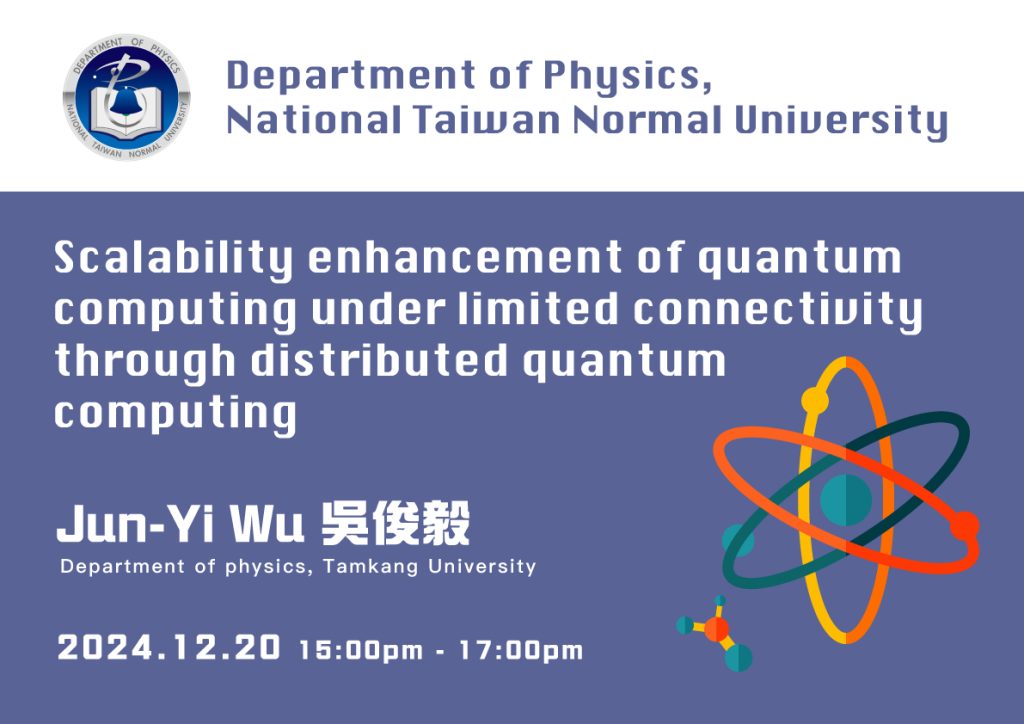Time:Friday, 20 15:00~17:00 December 2024
Venue:F102
Abstract:
We employ quantum-volume random-circuit sampling to benchmark the performance of entanglement-assisted distributed quantum computing (DQC) with two quantum processing units (QPUs) and provide a comparative analysis with single-QPU quantum computing. Initially, a single-qubit depolarizing noise model is introduced within the random circuit framework, upon which a precise correspondence is established among three critical performance metrics: average gate fidelity, heavy output probability, and linear cross-entropy. An analytical approximation for average gate fidelity under this noise model is derived and demonstrated to align closely with numerical simulations. This approximation is obtained using a noise propagation matrix constructed from the extended connectivity graph of a DQC device. Numerical simulations indicate a scalability advantage for DQC in QPUs with constrained connectivity, enabled through the use of noisy entanglement. The proposed methodology provides a method for determining the noise threshold of entanglement required to enhance scalability in entanglement-assisted DQC configurations.
[1] S.-H. Hu, G. Biswas, and J.-Y. Wu*, arXiv:2405.10942 (2024)
